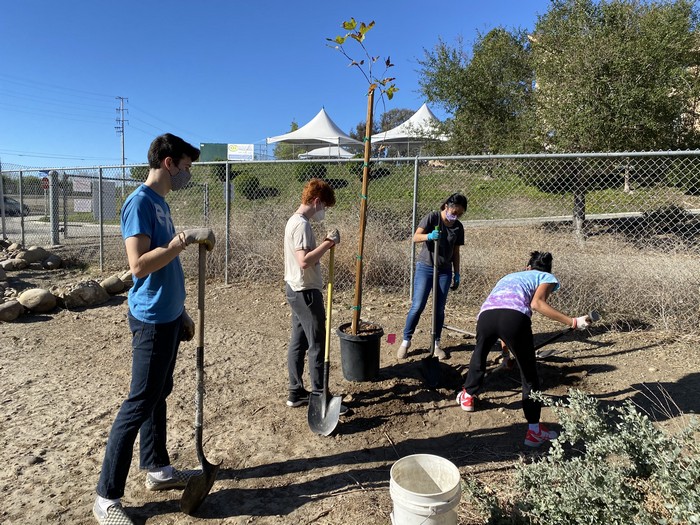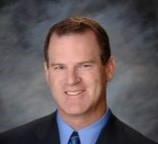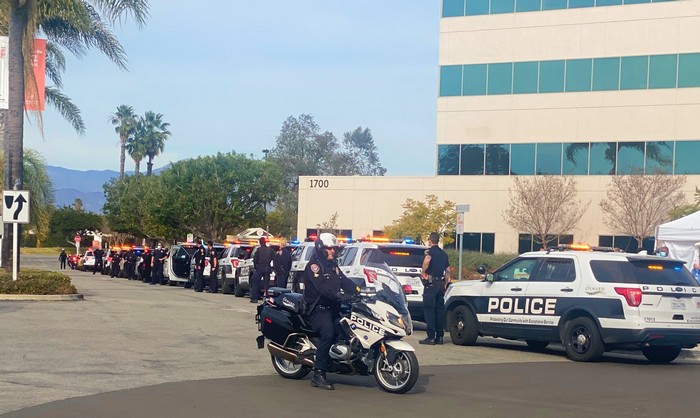“With the global pandemic, this past year has been a real struggle for all of our employees.”
by Carol Leish
Ventura Unified School District’s Superintendent, Dr. Richard Rice, who was appointed in January, 2019, and started working in March, 2019, said, “I love the community of Ventura and am extremely proud to serve its residents.”
“With the global pandemic, this past year has been a real struggle for all of our employees,” according to Dr. Rice. “We have lost more than 500 students, and our progress on many of the compelling programs we had beginning in the pipeline have been slowed down. This said, I am optimistic that things are getting better and I am very hopeful that soon, we will be shifting our focus more and more away from handling the ever-changing COVID-19 situation and the operational impacts COVID-19 has had on our District and return to building the great programs that we have planned.”
As far as how Zoom is working for both students and teachers, Dr. Rice said, “Like any other non-traditional approach, it is working better for some than for others. On the whole, I am extremely pleased with our teachers growth in offering distance learning and I think in the future, this will serve us well. I also think there will be many students who prefer this model of learning. We are planning to expand upon our distance learning options for next year.”
As far as students and teachers being able to adapt to Zoom, Dr. Rice said, “I think that students and teachers both have adjusted well to the technical pieces of working in/with Zoom and other distance learning platforms. That said, there is no substitution for a teacher’s direct in-person presence in the instruction of students. We look forward to returning to more in-person learning as soon as possible. Currently, our plan is to resume to a hybrid in-person instruction at the elementary school level on February 1st. And, at the secondary level, on April 12th”
“Obviously, every school and district are dealing with some degree of learning loss,” according to Dr. Rice. “The challenge is/will be accurately measuring how much, and in what areas. My understanding is that this year’s state standardized testing will be truncated and therefore likely now serve as the best indicator of this. This is troubling since we need to know where the learning loss is occurring in order to address it. Thankfully, our instructional staff is well versed in formative assessment and I am looking forward to hearing more from them over the remainder of the year as to exactly where they see learning loss has been occurring, and working with them to address those needs.”
Dr. Rice said that there is not an easy answer to the questions: ‘Who determines where schools can open?’ “Ultimately, the degree in which a school district can open its schools is up to the local School Board and Superintendent. It is also true that the requirements laid out by the California Department of Public Health, the Ventura County Department of Public Health, and now the Governor, have seriously limited the circumstances under which schools can reopen, including putting strict limits on how they operate once they are open.”
Even though Dr. Rice says, “I applaud the Governor’s intent to incentivize and reward returning to in-person learning models, I have several areas of concern regarding it. Chief among those concerns is the change to the current testing program that he is proposing, and how that will be impacting schools and districts. We have been told that funding may be an average of $425 per student, along with a discounted rate of $35 per test, which both have been mentioned. However, the best information that we have been able to find in Ventura County is that the cost per test will likely be more in the $50 range. If we are required to test teachers and students as proposed (every two weeks), that money, from the grant, will be gone in a matter of a couple of months, and will not address any of the other impacts of COVID-19 that we are experiencing. I am also concerned about local testing and lab result processing capacity. Obviously, when you add many people to the testing pool, the capacity is going to be pushed. Testing is of a limited value if the results are not promptly provided.”
According to Dr. Rice, “The parameters to reopen also include what color tier we’re in, which is based on the case rate per 1,000, and also the positivity rate of testing. We are currently in the deep purple tier with a positivity rate of 15.4%. We need to be below 8%, which we’re not even close to.”
Regarding the COVID-19 Vaccine, Dr Rice said, “Now, since mid-January, some of our staff our eligible for the vaccine. This includes our school nurses, health techs, school psychologists, and the occupational therapists. Educators and staff probably will be eligible very soon. I don’t think their will be a problem for the educators/staff to want to be vaccinated since they are keenly aware of wanting to keep the kids safe. Thus, they will be getting vaccinated on their own without needed our encouragement to do so. Kids will be needing parental permission before they get vaccinated.”





